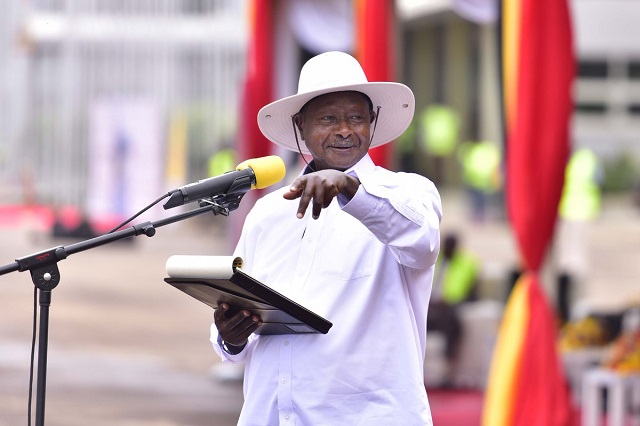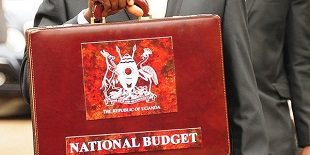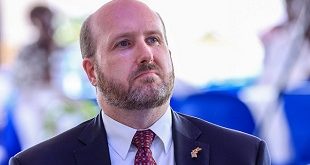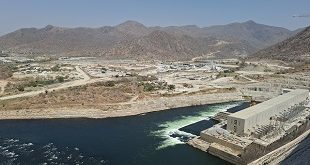
Museveni is wrong to advise that Ugandans with views that don’t sound sweet to him shouldn’t rally
COMMENT | MUKALAZI DEUS | President Yoweri Museveni on May 5, 2019 published an essay titled “Article on legitimate public assemblies.” In the article, the President maintains that if one is desirous of holding a public meeting or a procession, there is need to liaise with the police so that the meeting does not endanger the lives of other Ugandans or the safety of their property. He said the problem is that some elements of the opposition ignore this. They want to hold meetings or processions near markets or through crowded streets. He goes ahead to say that if one wants to assemble publically it must be for a legitimate reason.
On the face of it, the President’s pronouncements appear harmless since he goes ahead to justify his stand. However, a big problem lies underneath this seemingly well intentioned stand; the problem is on the limitation of freedom of expression.
Article 29 of the 1995 Constitution of the Republic of Uganda grants all people in Uganda freedom of expression, speech and assembly. The constitution further puts a limitation to the enjoyment of these rights in Article 43. The President is therefore right to say that enjoyment of these freedoms is not absolute.
The problem though is his insinuation that state organs like the police are right to curtail this freedom based on speculation and the judgement that these assemblies are likely to prejudice public order and interest and curtail freedoms of others.
It’s also important to note that tolerating offensive conduct and speech is one of the prices to be paid for a reasonably free and open society. Freedom of expression extends to holding, receiving and imparting all forms of opinions, ideas and information. It is not confined to categories, such as correct opinions, sound ideas or truthful information.
Subject to the limitation under Article 43, a person’s expression or statement is not precluded from the constitutional protection simply because it is thought by another or others to be false, erroneous, controversial or unpleasant.
Everyone is free to express his or her views. Indeed, the protection is most relevant and required where a person’s views are opposed or objected to by society or any part thereof, as “false” or “wrong”.
Secondly, the issue is not whether, under democracy, citizens are required or permitted to make demonstrably untrue and alarming statements under any guise. A democratic society respects and promotes the citizens’ individual right to freedom of expression, because it derives benefit from the exercise of that freedom by its citizens. In order to maintain that benefit, a democratic society chooses to tolerate the exercise of the freedom even in respect of “demonstrably untrue and alarming statements”, rather than to suppress it.
In the Supreme Court case of Charles Onyango Obbo and Andrew Mujuni Mwenda v Attorney General, court agreed that applying the constitutional protection to false expressions is not to ‘uphold falsity.’ The purpose is to avoid the greater danger of ‘smothering alternative views’ of fact or opinion. The Constitution guarantees to everyone in Uganda the right of freedom to hold opinions and to receive and impart ideas and information without interference.
In the above landmark judgement, which is binding on all persons in Uganda; including the President, the Supreme Court gave an interpretation of Article 43 clause 1. The clause states; “In enjoyment of the rights and freedoms prescribed in this Chapter, no person shall prejudice the fundamental and other human rights and freedoms of others or the public interest” Court held that the clause does not expressly or implicitly extend to a third scenario, where the enjoyment of one’s right is “likely to cause prejudice”.
Going by the above decision, it is therefore wrong for the President to advise that Ugandans should not be allowed to assemble and express themselves simply because they might express themselves on issues that do not sound sweet to him or what he calls lies or decampaigning of government investments. And the reason is plain enough; no man, no committee, and surely no government, has the infinite wisdom and disinterestedness accurately and unselfishly to separate what is true from what is debatable, and both from what is false. In a democratic society, what is expected is to counter the lies and misinformation with the truth and facts. Indeed it’s not surprising that shortly after the President’s “misadvise,” the Constitutional Court on May 31st 2019, ruled that as unconstitutional Sections of the Police Act that gave police powers to disperse rallies and use all necessary force including killing Ugandans.
****
Deus Mukalazi is a Research Associate-Democracy and Rule of Law Program at the Great Lakes Institute for Strategic Studies (GLISS) in Kampala
 The Independent Uganda: You get the Truth we Pay the Price
The Independent Uganda: You get the Truth we Pay the Price


